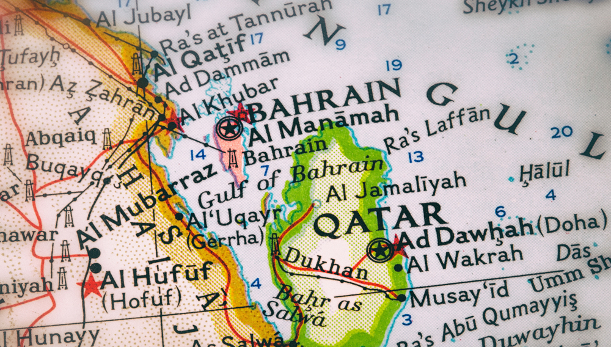Secularism in the Gulf: Learning from Bahrain’s War on Terrorism
Istituzioni ed economia
Europeans are riling over the spate of high-profile, mass-atrocity terrorist attacks that struck at the heart of Europe’s civil society this past year. Instead of demonising Arab states it is time to learn from some of their experiences in dealing with spikes in radicalisation and its reflective terrorism. Bahrain’s approach is unique to a region in which religion and state tend to be intertwined—it separated them. There are lessons to be learned from Bahrain’s experience for the region and beyond.

Radical Islamic groups – like ISIS and Hezbollah, despite representing different sects – share goals of establishing theocratic systems of governance according to distorted readings of religious texts. They exercise pain on civilian populations as a matter of policy and are comfortable with terrorism, murder and the destruction of property—no matter its historic significance. And, they often find some support from abroad.
Hezbollah is publically and unapologetically supported by Iran, which uses the group to generate instability in the Middle East and, at times, in Europe. Hezbollah also enjoys the absurd distinction between its political and military wings and many Europeans have only banned the latter enabling Hezbollah to keep fundraising channels open. Alternatively, ISIS is a fringe group not supported by Arab states. Instead, it relies on a string of donors, criminal enterprises, disenchanted tribes (particularly in Iraq’s Anbar province) and the continued thirst for illicit (hence cheap) oil.
ISIS offers a Caliphate and Hezbollah an Imamate. ISIS may be at war in and with Europe, but Hezbollah is as well—though Hezbollah’s war typically unfolds against European interests in the Middle East and not on Parisian streets. Still, it is a dangerous error to treat the two – and their organisational allies – differently.
For those with a stake in stability it is time to deal with religious violence and terrorism as a singular problem instead of through geopolitical calculi. Iranian backed Shia militias are not different from the radicalised Sunni groups.
Choose sides and you get Iraq where al Sadr’s Mahdi Army takeover of the national armed forces ultimately empowered the radical Shia Ayatollahs which then used the country’s military power as a club…to mete out sectarian “justice” – murder, rape and ethnic cleansing – against the Sunni population. The US and Europe were duped and supported Iraq’s Shia militants dressed in the fatigues of a national army purged of Sunni officers and used as yet another front in the country’s simmering civil war. Embattled, abandoned and embittered, Iraq’s Sunni population was susceptible to the promise of security by the then Islamic State of Iraq (ISI)—even if it brought them under the yoke of a radicalised Islamist organisation. By the time the ISI revealed its true intentions, it was too late. Those who could leave, left and the others either had to radicalise or, at least, pretend to. Radicalised religion became the ideology of the statelets that were later sewn together as the ISIS Caliphate.
Then came the outsiders—the international ideologues that wanted to take part in the new Islamic State on the promise of spoils in this, and the next life. This imported – and as a matter of policy, later exported – radicalisation from and to Europe. The international community weighed in, radicals were dispersed. Pressure mounted, terrorism spiked.
***
To avoid a repeat of Iraq, a real political strategy is needed to combat terrorism through political isolation of its sources of inspiration, financing and religious legitimacy—crack down on extremism in the Middle East and reduce its surfacing in Europe. But doing so means breaking the cycle of European systems of politicking where lobby groups generate European policies instead of European interests.
And European interests are changing. From a focus on economic engagements, Europe is increasingly concerned with political developments in an attempt to understand and navigate regional and trans-regional trends. But it cannot do so alone. It needs allies in the region, allies that speak Arabic, understand the nuances of Islamic culture and can make sense of the jargon on the streets. Europe requires anchors of stability in order to effectively combat terrorism and its sources of energy. Yet it has done a very good job in alienating its closest Arab allies, such as Bahrain, for doing exactly what needs to be done in order to win the war on terrorism.
Thirty-seven years of struggling against a radicalised Islamic Republic, Iran, has taught Bahrain many things about its adversaries, its friends and itself. That, from its inception, Islamic Revolutionary Iran began a campaign of subversion, terrorism and insurgency throughout the Middle East – focusing on a handful of strategic points, such as Bahrain – was unsurprising and many leaders, such as Bahrain’s PM, Prince Khalifa al Khalifa, warned about Iranian intentions since at least 1978—as the revolution began. The writing was on the wall but few could appreciate just how far Iran would go or how radical its regime was.
Bahrain’s first lesson was that in wars of terrorism, everything was possible. There were no limits to what Iran would do to undermine Bahrain’s national cohesion and stability. The Islamic Republic incited violence over the airwaves and dispatched hardened Hezbollah units to train local terror cells of the (then Islamic Front for the Liberation of Bahrain, IFLB). It created a civil disobedience militia, Sacred Defence Bahrain, and a political organisation to act as a go-between—the Islamic Dawa (banned and later rebranded as al Wefaq). Iran named members of its Majlis (parliament) as representatives of Bahrain and through them begun to fund anti-Bahrain opposition movements in Europe. It conducted terrorist attacks against Bahrain’s government and society.
With a no-holds-barred adversary, coupled with an intimidating imbalance of power – Bahrain’s 550 thousand nationals represented less than 1% of Iran’s population of 87 million – Bahrain learned that alliance was not a luxury but a necessity. And so Bahrain encouraged the formation of the Gulf Cooperation Council (GCC) to pool intelligence, military and economic resources behind collective interests and security. The other founding members agreed and in 1981 the organisation was established—in the shadow of the Islamic Revolution in Iran. The GCC is not without its problems but they are insignificant compared to the collective security it offers its members, security underlined by a host of internationals such as the US, UK and France.
But alliances can only help win the material war on terrorism by deterring, supporting police actions and intelligence operations. They cannot change the nature of a society so as to undermine the legitimacy of those that preach radical ideas and sanction terrorist actions.
It has taken some time, but Bahrain made history in May 2016 for developing the most comprehensive approach for dealing with terrorism and it has nothing to do with arrests, prisons or even rehabilitation. Instead, Bahrain became the first Arab country to officially separate Mosque and State. In doing so, Bahrain dealt a fatal blow against radicalisation, against the potential of ISIS and against the existing Iranian militias, against all of them: Hezbollah, the Youth of 14 February and Sacred Defence Bahrain. And the political personalities that provided spiritual and financial support to them, people like Ayatollah Isa Qassim and Ali Salman, are experiencing what secularism is all about. Their organisation, the al Wefaq society – sectarian by nature – was disbanded, its assets frozen and its leaders arrested for incitement. Isa Qassim had his nationality revoked. These are the consequences of trying to wage a sectarian war in a secular state and they are just as applicable to Sunni groups as they are to Shia. Bahrain is not a sectarian state—but its antithesis.
***
Many in Europe do not understand what is happening in Bahrain because they are exposed to the headlines minus the substance. But Bahrain has gone through what France and Belgium, Germany and the UK are going through today. Radicalisation needs to be confronted materially and ideologically. Caution and vigilance is needed, police have to make arrests and it is time for Europe to be more proactive in dealing with those attempting to commit mass murder and those that inspire them. And, most importantly, it is time to stop supporting radical states just because their short-term interests align with your own. In the end, a radicalised regime is the enemy of progress and secularism its ally.
*La versione tradotta in italiano di questo articolo è disponibile a questo link ed è stata pubblicata sulla nuova monografia di Strade dal titolo "L'Islam, i muri e l'Europa".








